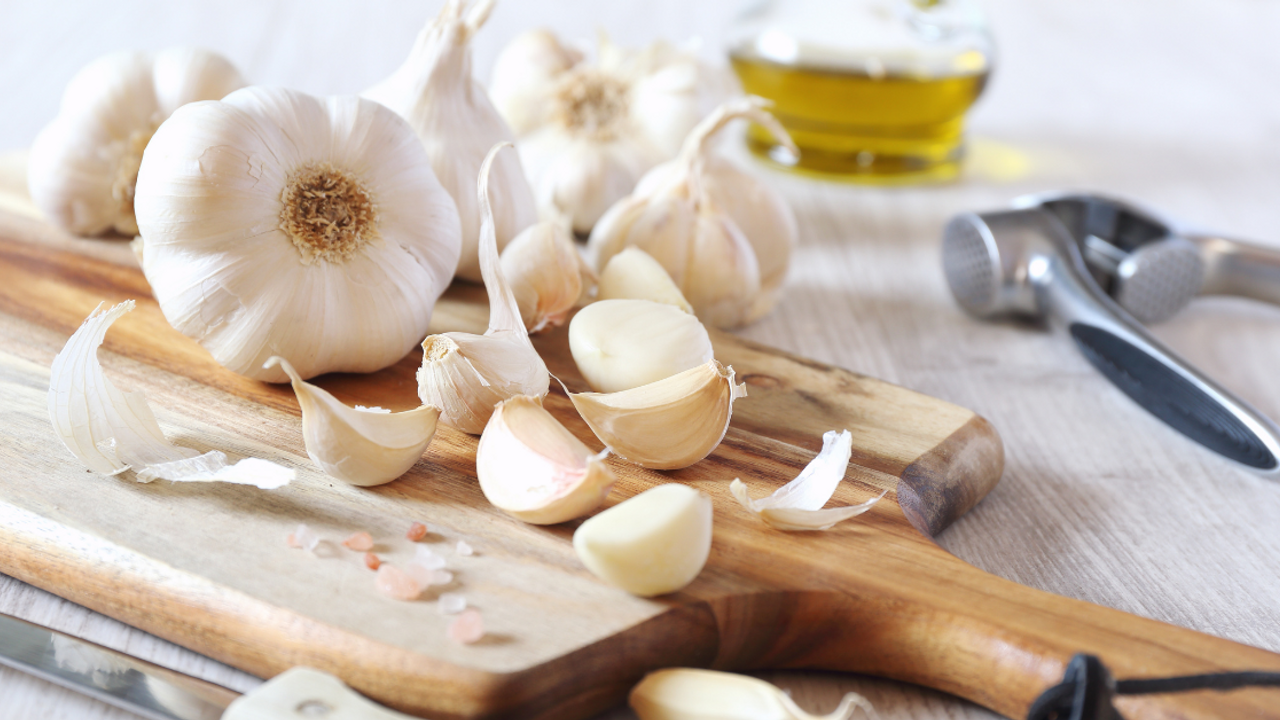Menopause Menu: Garlic
Oct 08, 2022
If you don’t like garlic, you’ll love it by the time you read this, and if you are already a garlic lover, the fantastic news listed here will increase your love exponentially. I’m sure that by now, you have heard all the increased health risks that menopause brings, but instead of focusing on the bad, I like to highlight ways, even small ones, to tilt the balance to the positive. That’s why I created the Menopause Menu; a series dedicated to exploring foods that can be easily assimilated into your diet and positively affect menopause-related symptoms. The foods I explore might not change your life from one day to the next, but over time can make a difference in how your body feels, how well it can stay healthy, and even manage/minimize menopause symptoms. Today’s Menopause Menu superstar is garlic.
Studies show a strong link between the loss of estrogen and increased inflammation. The increased inflammation can increase the risk for inflammatory diseases such as rheumatoid arthritis. So what can you do? One minor but powerful change is to add foods with anti-inflammation properties. One of those is garlic! Garlic has been reported to possess many properties, including anticarcinogenic, antioxidant, antidiabetic, renoprotective, anti-atherosclerotic, antibacterial, antifungal, and antihypertensive characteristics. One of garlic's most potent health benefits is enhancing the body’s immune cell activity and strengthening the body’s defenses. A study published in 2012 showed that supplementation with garlic reduced cold and flu symptoms. Another study showed that aged garlic extract (AGE) supplementation reduces cardiovascular risk factors independently of exercise in postmenopausal women.
Let that sink in! That’s a lot of good a bit of tasty garlic can potentially influence.

Note: This article is based on a review of the literature. This is not to be taken as medical advice or nutritional guidance. My advice is always to be careful when adding new supplements or herbs to your diet because they could interact with your medication/medical condition. It is always an excellent idea to reach out to your physician to confirm that adding any new food/supplement will not harm your health.


